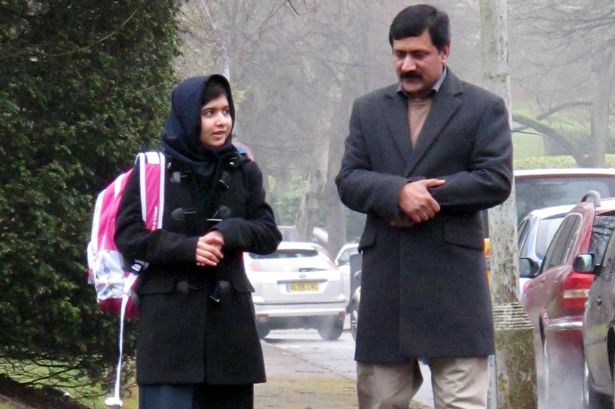On July 12, Malala Yousafzai, the teenage Pakistani girl whom a Taliban militant shot in the head last October while she was riding home from school, stood before the United Nations and spoke boldly and maturely about the power of education. “Let us pick up our books and our pens,” Malala declared. “They are our most powerful weapons.”
Malala is one of the lucky girls of northwestern Pakistan — she gets to go to school. But for too many girls in Pakistan, home is where they spend their days. So what’ll it take to get more Pakistani girls out of the home and into homeroom? It may seem counterintuitive and unfair, but the only sure way to make girls’ education the norm is to get more Pakistani boys into school.
This is not — I repeat, not — an argument that we shouldn’t strenuously strive to get more girls into school. Rather, in areas of the world such as northwest Pakistan, where men have absolute control over females, women’s and girls’ fate lies in the hands of men. Men are the ultimate deciders, so in the end, the only way girls can safely get educated en masse is for men to voluntarily ease their repressive grip on females. Malala is a case in point: She could go to school because her father is an outlier in his community — a progressive man who understands the value and justice in educating girls. If only more girls in the world’s most patriarchal places had dads like Malala’s.
So how do we get “clones” of Malala’s dad, Ziauddin Yousafzai? One surefire way to bring about attitudinal shifts in men is for more boys to go to school because in general, better-educated men have more-enlightened attitudes about females.
Social change happens when minds change. If may not be fair, but short of mass insurrections by the oppressed, social change happens when the minds of the most powerful and influential segments of society change. [pullquote]Social change happens when minds change.[/pullquote]
In the United States, women ultimately got the right to vote only after enough men — including male politicians — changed their minds and got the Constitution amended. African-Americans officially gained civil rights only after an overwhelmingly white Congress passed the required legislation — and in a democracy, that only happened after enough of the country’s white population was on board with civil rights. Same-sex marriage is on track to eventually be legalized throughout the United States — but that’s only happening because a critical mass of straight people have become accepting of same-sex relationships. Similarly, for women’s advances to “stick” in traditionally patriarchal societies, a critical mass of men — particularly those in influential positions of power in politics and religion — will have to come to realize that educated women are assets, not threats.
Malala’s dad is the leading edge of what will hopefully be a new generation of Pakistani men who believe in girls’ education. We need more Mr. Yousafzai clones, for men are the jail keepers holding the keys to unlocking women from their repression. And for the status of Pakistani women to improve, Pakistani men have to want it.
Preeti Aroon, a writer based in Washington, D.C., is copy chief at Foreign Policy magazine and tweets at @pjaroonFP.














Presumably the *type* of education the boys get matters, though. I’m sure many Taliban blowing up girls’ schools got some schooling — but in a madrassa that taught fundamentalism rather than “3 R” fundamentals, much less open-minded inquiry. Believing that all schooling and all education is good can misguide parents into putting their sons in schools that at *best* will turn boys into men who keep their daughters home. http://www.lrb.co.uk/v35/n15/andrew-ohagan/boys-and-girls
The comparison to the US is interesting, but the examples you cite often are used for the theory of interest convergence. Probably its most famous proponent is the late Derrick Bell, who said that white Americans got interested in giving black people civil rights only at the point that Soviet organizations and powers were attracting nations and peoples of color by pointing to American inequality and declaring that under Communism, everyone would be equal.
It’s a cynical view — through that lens, women got the right to vote as a way to balance out the growing power of ethnic men after massive waves of immigration in the late 19th and early 20th century; LGBT equality has become a focal point, particularly among centrist Democrats, in order to avoid talking about income inequality.